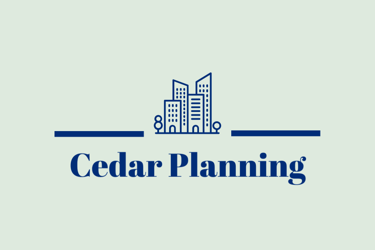Permitted Development Rights for Householder Extensions in the UK
Permitted Development Rights offer many homeowners with the opportunity to extend and alter their homes without the need for planning permission. However, it is important to understand the rules and seek professional advice.
9/18/20252 min read


In certain circumstances homeowners have the opportunity to extend their properties without the need for a full planning application, thanks to Permitted Development Rights. These rights allow certain types of householder extensions to be carried out under specific conditions, making the process quicker and more straightforward for homeowners.
While Permitted Development Rights provide a convenient way to extend your home, it is important to be aware of the regulations and restrictions that may apply. To ensure compliance and avoid potential issues in the future, it is recommended to apply for a Lawful Development Certificate.
What are Permitted Development Rights?
Permitted Development Rights are a set of rules that allow homeowners to make certain types of alterations and extensions to their properties without the need for planning permission. These rights are granted by the government and are subject to specific limitations and conditions.
Under Permitted Development Rights, homeowners can carry out extensions such as loft conversions, single-storey extensions, and conservatories, as long as they meet certain criteria. These criteria include restrictions on the size, height, and location of the extension, as well as limitations on the materials used.
What types of development are covered?
The following types of development are covered by Permitted Development Rights, although you should always check for any specific restrictions:
Extensions to your home;
Upwards extensions;
Dormer extensions;
Roof lights;
Porches;
Outbuildings - such as garden rooms;
Hard surfaces;
Chimney, flues etc
Microwave antenna.
Each of these development types are covered by certain rules, regulations and conditions.
The Importance of a Lawful Development Certificate
While Permitted Development Rights provide flexibility for homeowners, it is essential to ensure that any extension or alteration falls within the permitted limits. Applying for a Lawful Development Certificate is a way to obtain confirmation from the local planning authority that the proposed works comply with the regulations.
A Lawful Development Certificate acts as proof that the extension or alteration is lawful and can be beneficial when selling the property in the future. It provides assurance to potential buyers that the works were carried out in accordance with the permitted limits, reducing any potential complications or disputes.
Article 4 Restrictions and Planning Conditions
Although Permitted Development Rights generally apply to most residential properties, there are cases where these rights may be restricted or limited. Article 4 Directions can be implemented by local authorities to remove or restrict Permitted Development Rights in specific areas.
Additionally, planning conditions imposed on a property may also limit Permitted Development Rights. These conditions can be attached to the original planning permission or imposed later, requiring homeowners to seek further consent before carrying out certain extensions or alterations.
Larger Household Extension Prior Approval Scheme
In 2013, the UK government introduced the Larger Household Extension Prior Approval Scheme, which allows homeowners to extend their properties beyond the usual limits of Permitted Development Rights. This scheme provides an opportunity to build larger extensions, subject to specific conditions and prior approval from the local planning authority.
Not all extensions are eligible for the Larger Household Extension Prior Approval Scheme. The scheme has its own set of criteria and limitations, including restrictions on the size, height, and proximity to boundaries. And it is important to remember that for this scheme you need to apply for approval to your council before commencing work.
Contact Us for Assistance
If you are considering a householder extension and need guidance on Permitted Development Rights, Lawful Development Certificates, or any other planning matters, our team is here to help. Contact us today to discuss your requirements and ensure a smooth and compliant extension process.
Contacts
Email: info@cedarplanning.co.uk
Phone: 07418 610156
Office (by appointment only) Cedar Planning Ltd, 82a James Carter Road, Mildenhall, Bury St Edmunds, IP28 7DE


Click the above button for a free Whatsapp consultation

